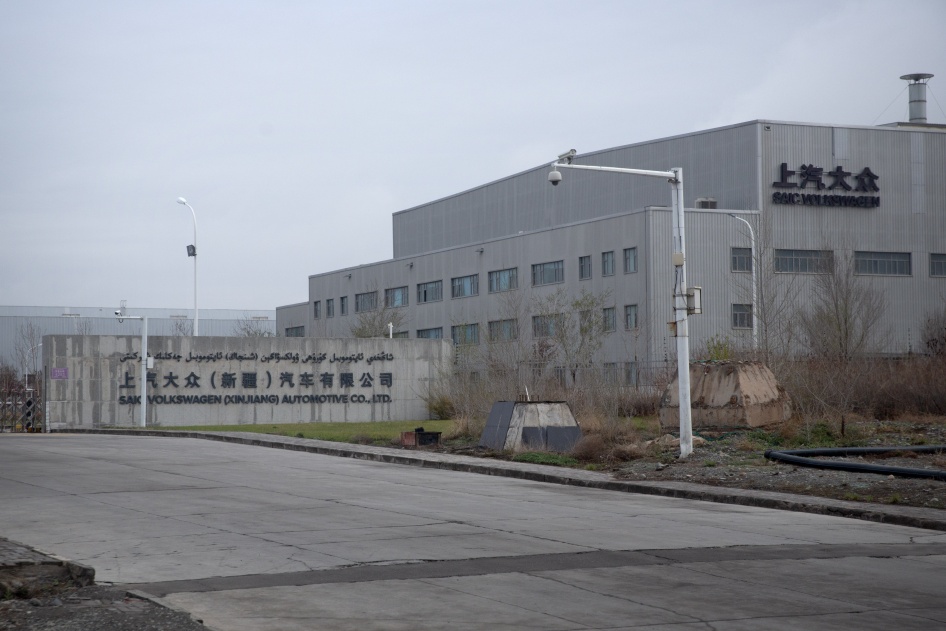Volkswagen’s decision last week to cease operations in China’s Xinjiang Uyghur Autonomous Region after 12 years is significant, though long overdue.
The German automaker’s exit demonstrates the near impossibility of operating responsibly in a region where the Chinese government is committing crimes against humanity, and subjecting Uyghurs and other Turkic Muslims to state-imposed forced labor.
Volkswagen was among the highest-profile global brands to maintain a presence in Xinjiang, with a subsidiary of its Chinese joint venture, SAIC-Volkswagen, operating a production plant in Urumqi, Xinjiang’s capital, and a testing track in the city of Turpan. The company has long denied any risk of forced labor at the facilities and cited “economic reasons” for the decision to sell them.
Sustained global pressure on Volkswagen led the company to commission and release a deeply flawed audit of the Xinjiang facilities in 2023. Although the audit purportedly found no evidence of forced labor at the plant, the German official overseeing the audit acknowledged it was based on a review of documentation rather than interviews with workers, which he said could be “dangerous.” He also suggested the risk of retaliation meant workers would be unlikely to report evidence of forced labor at the plant.
Human Rights Watch and other organizations have repeatedly warned that credible auditing and human rights due diligence is not possible in Xinjiang and urged Volkswagen to leave the region. The company said in February it was in talks with its Chinese joint venture “regarding the future direction of the JVs [joint ventures] business activities in Xinjiang Province.”
However, selling the Xinjiang plant won’t eliminate Volkswagen links to forced labor. Reports by Human Rights Watch and others have found that carmakers, including Volkswagen, are at risk of exposure to Uyghur forced labor through their supply chains, especially for materials, like aluminum, produced in large quantities in Xinjiang.
Volkswagen should take further steps to insulate itself from state-imposed forced labor by ensuring its Chinese joint ventures and suppliers adopt and enforce the same human rights and environmental standards as the company’s German operations.
All companies should map their supply chains and cease doing business with any supplier sourcing material directly or indirectly from Xinjiang. Companies should ensure their products are not tainted with state-imposed forced labor.









